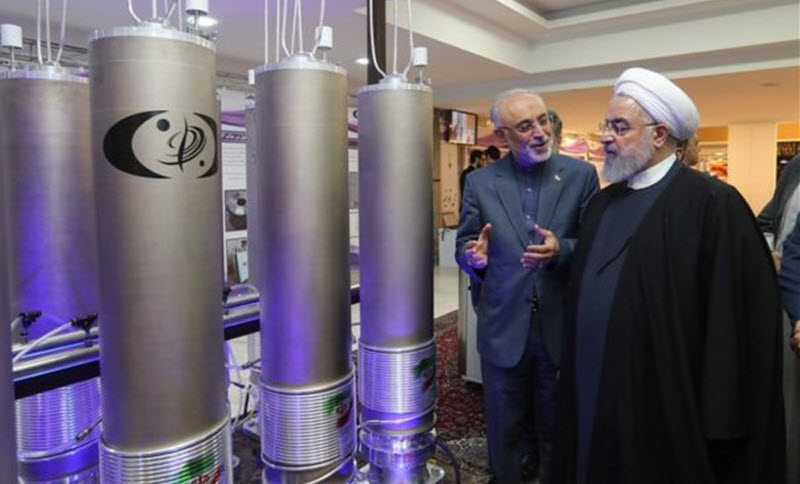

By Armin Baldwin
Iran’s nuclear chief said Tehran will resume activities at the Arak heavy water nuclear reactor, according to the state-run ISNA news agency.
ISNA cited MP Mehrdad Lahouti, the spokesman for the “independent” faction of the Iranian parliament, as saying that during a meeting with lawmakers on Sunday, the matter of the Arak heavy water nuclear reactor was discussed and Ali Akbar Salehi, the head of Iran’s Atomic Energy Organization, made the decision to restart activities there.
Heavy water can be used in reactors to produce plutonium, a fuel used to create nuclear warheads.
Lahouti said that Salehi was insistent on Iran’s need to continue its nuclear activities because Iran’s “enemies” know Iran has the “knowledge and ability”, but will not produce nuclear weapons for “religious reasons”.
Back in May, Iran announced that it would begin breaching the nuclear deal signed in 2015 with six world powers if Europe and, to a lesser extent, China and Russia, didn’t help Iran evade tough US sanctions. These sanctions were imposed after the US pulled out of the nuclear deal, formally known as the Joint Commission of the Joint Comprehensive Plan of Action (JCPOA), in May 2018, branding it “unfair” and citing Iranian noncompliance.
Iranian President Hassan Rouhani announced on July 3 that Iran would increase its uranium enrichment levels beyond the 3.67% agreed upon in the deal and begin to revive its Arak heavy-water reactor on July 7 if the other signatories did not protect Iran from US sanctions. Iran said that their breaches of the nuclear deal could be reversed if their demands were met.
Also on Sunday, Britain, France, Germany, Russia, China and Iran met in Vienna to discuss how to save the nuclear deal. The meeting was chaired by the EU foreign policy service’s Secretary General Helga Schmid.
The West is concerned about Iran’s nuclear ambitions and believes they must be curbed in order to prevent Iran from creating a nuclear weapon. Meanwhile, tensions between Iran and the West have soared in recent weeks, with several attacks on shipping in the Strait of Hormuz attributed to Iran, including the seizure of a British tanker.
Iran previously threatened to close the Strait in retaliation for US sanctions that limited its ability to export oil. The seizure of the British tanker is believed to be in retaliation for the UK’s seizure of an Iranian tanker carrying oil to Syria earlier this month in violation of EU sanctions.







